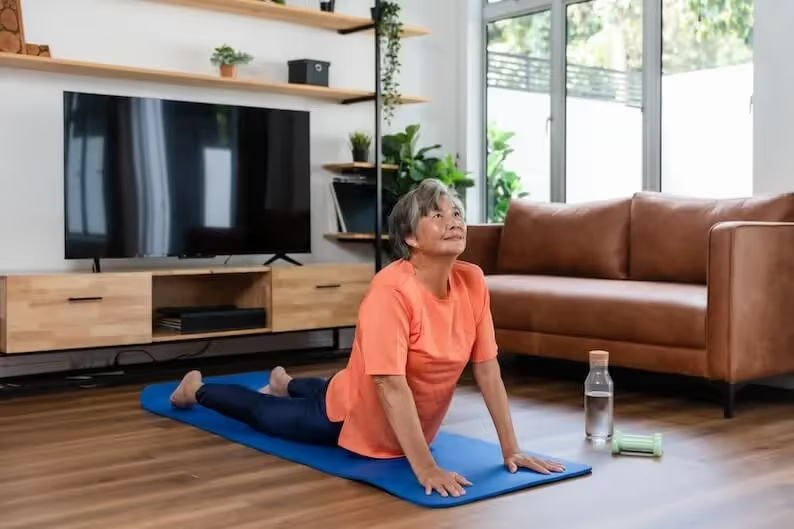In a world often filled with hustle and bustle, finding peace and harmony can sometimes feel like searching for a needle in a haystack. Yet, amidst the chaos, there's a timeless practice that offers a serene path to both physical and mental well-being – yoga. As we celebrate International Yoga Day today, it's the perfect opportunity to delve into how this ancient art not only nurtures our bodies but also cultivates cognitive function, supporting brain health in remarkable ways. So roll out your mat, take a deep breath, and let's explore the fascinating intersection of yoga and brain health.
The Mindful Connection
Yoga isn't just about twisting yourself into pretzel-like shapes; it's a holistic journey that intertwines breath, movement, and mindfulness. Research has shown that this mindful approach to movement can have profound effects on brain function. When we practice yoga, we engage in a state of focused attention, calming the incessant chatter of the mind and promoting mental clarity.
Brain Boosting Benefits
So, how exactly does yoga benefit the brain? Well, for starters, it's a fantastic stress-buster. In today's fast-paced world, stress is practically unavoidable, but its detrimental effects on the brain are well-documented. Fortunately, yoga offers a sanctuary from the storm, triggering the body's relaxation response and reducing levels of the stress hormone cortisol. By dialing down stress, yoga creates a conducive environment for brain cells to flourish and thrive. But the benefits don't stop there. Yoga also enhances cognitive function by improving blood flow to the brain. Through gentle stretches and invigorating poses, yoga promotes circulation, delivering oxygen and vital nutrients to every nook and cranny of the brain. This increased blood flow nourishes brain cells, fostering neural plasticity – the brain's remarkable ability to adapt and rewire itself in response to new experiences. Yoga has also been shown to enhance mood and alleviate symptoms of depression and anxiety, both of which can take a toll on brain health. By fostering a sense of inner peace and well-being, yoga lays the foundation for a resilient and agile mind.
Yoga for Seniors
Now, you might be thinking, "But isn't yoga only for the young and bendy?" Not at all! Yoga is a practice for everybody, regardless of age or flexibility. In fact, seniors can reap immense benefits from gentle yoga tailored to their needs. Here are some easy poses seniors can incorporate into their daily routine:
- Chair Yoga: Start by sitting comfortably in a chair with your feet flat on the ground. Inhale as you reach your arms overhead, gently stretching towards the ceiling. Exhale as you lower your arms back down. Repeat for several breaths, allowing the movement to flow with ease.
- Seated Twist: Remain seated in your chair with your spine tall and shoulders relaxed. Inhale to lengthen your spine, then exhale as you twist gently to the right, placing your left hand on the outside of your right knee and your right hand on the back of the chair for support. Hold for a few breaths, then repeat on the other side.
- Legs-Up-The-Wall: This pose is excellent for promoting relaxation and reducing swelling in the legs. Sit sideways next to a wall, then gently lie down on your back, extending your legs up the wall. Rest your arms by your sides and close your eyes, breathing deeply for a few minutes.
Achieve Optimum Brain Health Through Yoga
As we celebrate International Yoga Day, let's not only revel in the physical benefits of this ancient practice but also honor its profound impact on our most precious organ – the brain. Through mindful movement, breath, and meditation, yoga offers a sanctuary for the mind, fostering cognitive function and promoting brain health at any age. So whether you're a seasoned yogi or a curious beginner, roll out your mat and embark on a journey of self-discovery and well-being. Your brain will thank you for it!




